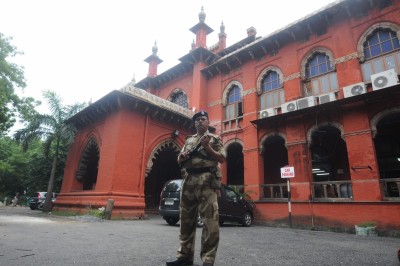
Chennai, The Madras High Court on Wednesday ruled that admissions and appointments under 10.5 per cent reservation for the Vanniyar community from the Most Backward Castes (MBC) would be subject to the outcome of its final order.
The court, however, said that it was not enforcing a stay on the reservation even though it was hearing petitions against it.
A division bench of Justice M.M. Sundaresh and Justice S. Kannammal, hearing a set of writ petitions against the Vanniyar reservations, said that any admissions provided or likely to be provided and any appointments made or to made on the basis of the 10.5 quota is subjected to the outcome of the final verdict.
It made it clear that the interim order must be known to every beneficiary of the law.
The bench also said that the court would be at liberty to pass appropriate orders in its final verdict with respect to the admissions and appointments by internal reservation.
Giving two weeks time for the impleading petitioners to file their pleadings, it adjourned the case till September 14.
Advocate General R. Shanmugasundaram contended that any interim order would not do good as after enactment, the Act was given effect and that the Tamil Nadu Dr. Ambedkar Law University had already implemented the law in admissions.
A total of 35 petitions were moved before the Madras High Court challenging the 10.5 per cent internal reservation provided to the Vanniyar community. After the legislation for 10.5 per cent reservation to the Vanniyar community was passed in the Assembly just before the model code of conduct for the 2021 Assembly elections was announced, several other backward class organisations have opposed it.
Advocate K.M. Vijayan, appearing on behalf of the petitioners, had pressed for an interim stay for an injunction on admissions in educational institutions. Alleging that the then government had "malafide intentions", he said that the enactment was carried out hurriedly just before the elections were held.
The court also allowed the impleadment petitions moved by the PMK and others and permitted them to submit their pleadings in support of the law.


.jpeg)

